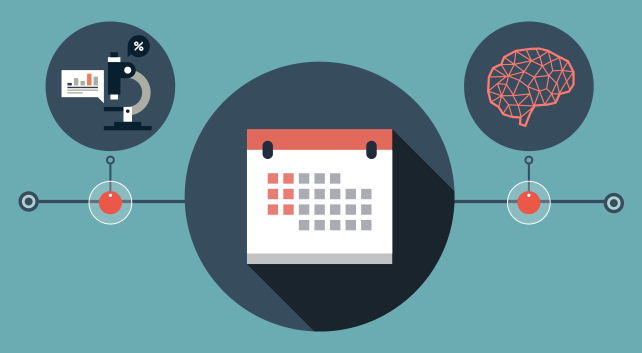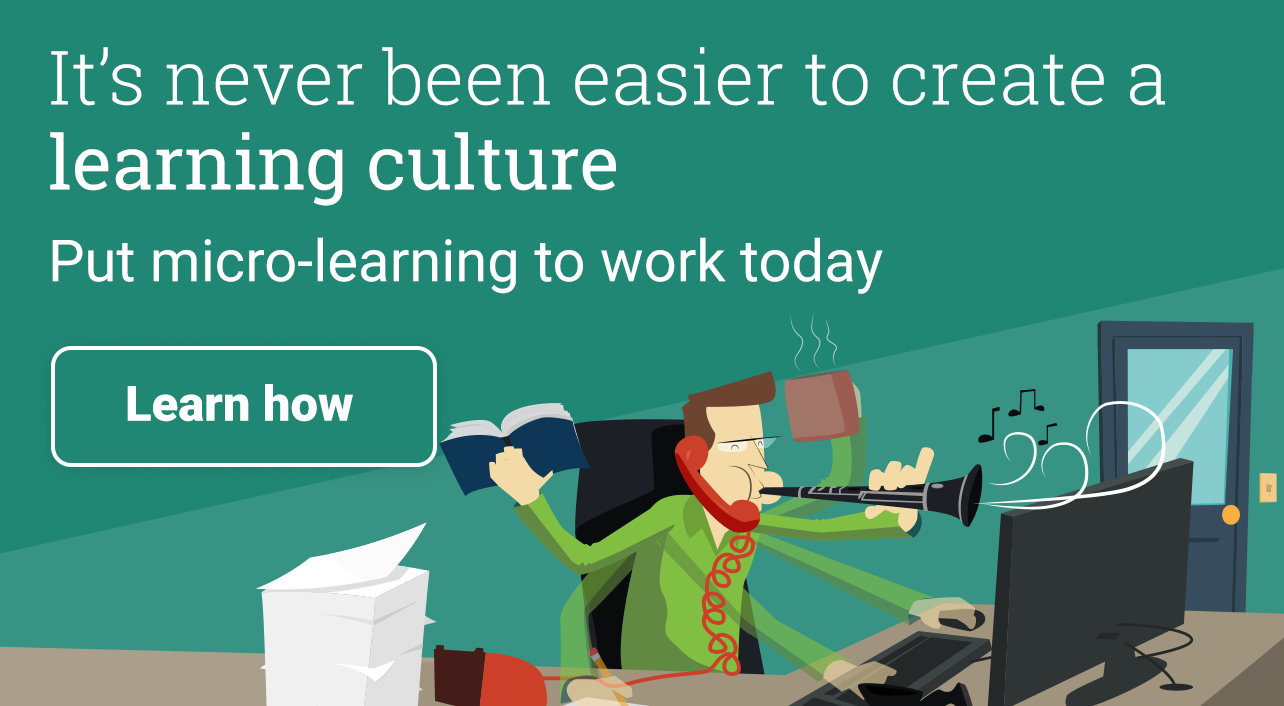- rli
- Blog post
New study reveals the neuroscience of long-term learning
Imagine you’re setting up your next workplace learning session. You decide on a topic and the instruction material. Then, you inform your learners, schedule a meeting and give them a heads up on what they’ll be learning.
During the session, you then review the material, conduct a group discussion and answer any questions learners might have. You nailed it, right? Not so fast.
Recent research from Dartmouth College suggests that there’s one final piece of puzzle. And if you don’t include it, your training session could be a complete bust.
The research
Neuroscientists at Dartmouth conducted a study investigating a widely held assumption about the brain and how we learn: That the brain functions optimally – that with sufficient motivation and the potential for reward, we will efficiently learn. But the researchers found that, of course, it’s not that simple.
Our brains are plastic, meaning that they are highly adaptable and can change through shifts in environment, motivation or through learning something new. Because of this neuroplasticity, the researchers at Dartmouth found that we don’t always learn optimally. What’s more, our brains can decide on the fly whether something is worth remembering or not. And that can have significant ramifications for workplace learning.
The biggest factor that can affect the variability in learning is reward. If our brains are confident that acquiring a certain piece of information will result in a reward or benefit, that information has a great chance of being remembered. But if the brain suspects that there’s a possibility there will be no benefit, the brain may choose not to remember. And importantly, this happens subconsciously – it’s not an active decision by the learner. The brain decides what to remember based on past experience.
The researchers discovered this insight while comparing cognitive gains using two different data sets – one where there was a reliable reward or benefit for learning, and one where the reward has highly unpredictable.
Recommendations
Here are some recommendations based on the research and how the brain subconsciously identifies what’s worth remembering.
Rewards can take many forms. According to the study, reward is critical to learning. The use of the word “reward” might have some of you worried that you need to start paying your learners to participate in training. But “reward” in this context should be thought of as any tangible benefit that the learners would receive.
Say you establish learning goals as part of every employee’s annual performance evaluation. The reward for learning in this context would be a good year-end review, which could mean a financial bonus. Or the benefit of learning could be the ability for learners to do their jobs more efficiently and effectively.
Make the benefits clear. As a learning professional, you want to ensure that your learners always see the benefits of a learning experience. Clearly spell them out to learners before and after the session, with an emphasis on what makes them relevant.
For example, if you’re helping new managers improve their interviewing skills, explicitly detail the benefits of this skill. Reinforce how becoming a better interviewer will help them identify and hire more suitable candidates, which will then make their lives as managers easier and improve the organization overall.
Plus, as the study suggests, neglecting to accentuate the benefits of each learning experience may cause learners to tune out during training, whether they’re consciously aware of it or not. And this would mean disaster for your training program.
Keep benefits consistent. The study found that inconsistency and instability in rewards and benefits caused learners’ brains to forget important information. Therefore, keep any obvious rewards like bonuses or learning leaderboards consistent and the rules clear.
And try your best to keep the learning schedule and environment consistent as well – this stability will help learners recognize the importance of the training process and take the information presented seriously.
Source
Farashahi, S., et al. (2017). Metaplasticity as a neural substrate for adaptive learning and choice under uncertainty. Neuron, 94(2), 401-414.

Get a demo of all our training features
Connect with an expert for a one-on-one demonstration of how BTS Total Access can help develop your team.




